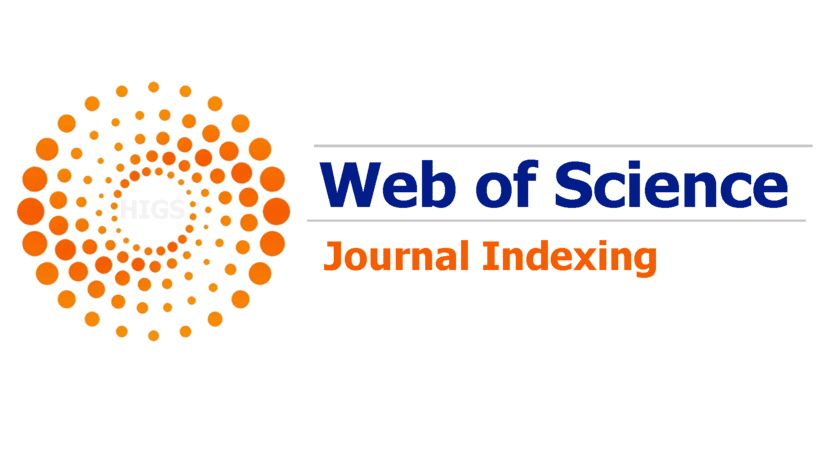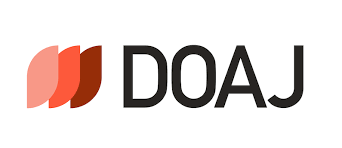Análise de efluente e histologia da pele, fígado e rim de pacus (Piaractus mesopotamicus) suplementados com cromo trivalente
Palavras-chave:
suplementação de cromo, efluente, histopatologia, peixesResumo
O objetivo do trabalho foi caracterizar histologicamente a pele, o fígado e o rim de pacus jovens submetidos í alimentação suplementada com cromo trivalente e avaliar a presença de resíduo de cromo na água efluente. Para tanto, foram utilizados pacus com peso médio de 100 g distribuídos num delineamento inteiramente casualizado (DIC), em esquema fatorial 4x2, sendo quatro níveis de cromo (0, 6, 12, 18 mg/kg) e duas densidades de estocagem (4 e 20 kg/m3), com quatro repetições, durante 90 dias. Histologicamente ocorreu aumento do número de células caliciformes e células clava na epiderme dos pacus suplementados com 18 mg de cromo/kg, em qualquer densidade de estocagem. No fígado observou-se o mesmo efeito da alta densidade que ocorreu na epiderme, sendo que na densidade mais alta (20 kg/m3) as alterações já ocorreram no nível de 6 mg/kg de inclusão de cromo, inicialmente com congestão do sinusoide e agravando no nível de 18 mg/kg com necrose. O rim não apresentou alterações morfológicas visíveis quando suplementados e submetidos í s densidades de estocagem, porém a concentração de cromo no efluente produzido estava abaixo do recomendado como tolerável pelas normas brasileiras. Assim, pode-se concluir que o nível de 18 mg/kg de suplementação não se mostrou benéfico e que a densidade de estocagem, devido ao possível estresse provocado, acelera o processo de alteração histológica dos tecidos.
Referências
ANDERSON, R.A. 1981 Nutritional role of chromium.Scientific Total Environm, {sl}, 17: 13-29.
ANDERSON, R.A. 1994 Stress effects on chromium nutrition of humans and farmal animals. Biotechnology in the feed industry, proceedings of Alltech’ 10 th Annual symposium, Nottingham.p.267-74
BEG, M.U. AL-MUZAINI, S. SAEED, T. JACOB, P.G. BEG, K.R. AL-BAHLOUL, M. AL-MATROUK, K. AL-OBAID, TKURIAN, A. 2001 Chemical contamination and toxicity of sediment from a coastal area receiving industrial effluents in kuwait. Arch. Environ. Contam. Toxicol., New York,41: 289í 297.
BEHMER, O.A., TOLOSA, E.M.C., FREITAS NETO, A.G. 1976 Manual de técnicas para histologia normal e patológica. Ed. EDART. 1a Edição. São Paulo, 241p.
BERNER, T.O., MURPHY, M.M., SLESINSKI, R. 2004 Determining the safety of chromium tripicolinate for addition to food as a nutrient supplement. Food and Chem. Toxicol., Oxford, 42: 1029-1042.
CONAMA, CONSELHO NACIONAL DO MEIO AMBIENTE. 1986 RESOLUÇÃO CONAMA. n. 20, junho/1986.RESOLUÇÃO CONAMA Nº 20, de 18 de junho de 1986. Publicado no DOU de 30/07/86. Brasília-DF.
DE FLORA, S. 2000 Treshold mechanismand site specificity in chromium VI carcinogenesis.Carcinogenesis, Oxford, 21(4): 533-41.
FAST, M.D.; SIMS, D.E.; BURKA, J.F.; MUSTAFA, A.;ROSS, N.W. 2002 Skin morphology and humoral non-specific defense parameters of mucus and plasma in rainbow trout, coho and Atlantic salmon. Comp. Biochem. Physiol., part A, New York, 132:645-57.
FLETCHER, T.C. 1978 Defense mecanism in fish. In: Biochemical and biophysical perspectives in marine biology. v. IV. Eds. MALINS, D.C. e SARGENT, J.R. Academic press. London, 189-222.
GRIZZLE, J.M., ROGERS, W.A. 1985 Anatomy and Histology of the Channel Catfish, ed Auburn University, Auburn, Alabama, 94p.
HASTEN, D. L.; HEGSTED, M.H.; KEENAN, M.J.; MORRIS, G.S. 1997 Effects of various forms of dietary chromium on growth and body composition in the rat. Nutrition research, Tarrytown, 17(2):283-94.
HERTZ, Y., MADAR, Z., HEPHER, B., GERTLER,A. 1989 Glucose metabolism in the common carp (Cyprinus carpio): the effects of cobalt and chromium. Aquaculture, Amsterdam, 76: 255-67.
HOSSAIN S.M., BARRETO, S.B., SILVA, C.G. 1998 Growth performance and carcass composition of broilers fed supplemental chromium from chromium yeast. Animal Feed Science Technology, New York, 71: 217-28.
INSTITUTE OF MEDICINE. 2003 Dietary references intake for vitamin A, K, Arsenic, boron, chromium, copper, iodine, iron, manganese, molybdenum, nickel, silicon, vanadium and zinc. National Academic Press,Washington, 2003. 800p.
IPCS-International Programmeon Chemical Safety World Health organization. 1988 Geneva
JORDÃO, C.P.; PEREIRA, M.G.; PEREIRA, J.L. 2002 Metal contamination of riverwaters and sediments from effluents of kaolin processing in brazil. Water,Air, and Soil Pollution, Dordrecht, 140: 119í 138.
LEE, T.H.; HWANG, P.P.; LIN, H.C. 1996 Morphological changes of integumental chloride cells to ambient
cadmiun during the earling development of teleost, Oreochromis niloticus. Environ. Bios. Fish, Dordrecht,
45: 95-102.
MONTERO, D., MARRERO, M., IZQUIERDO, M.S.; ROBAINA, L.; VERGARA, J.M.; TORT, L. 1999 Effects of vitamin E and C dietary supplementation on some immune parameters of gilthead seabream (Sparus aurata) juveniles subjects to crowding stress. Aquaculture, Amsterdan, 171: 269-78.
MORDENTI, A., PIVA, A., PIVA, G. 1997 The european pesrspective on organic chromium in animal nutrition. Biotechnology in the feed industry, proceedings of Alltech’ 13 th Annual symposium, Nottingham, p227-40.
PAN, Q.; LIU, S.; TAN, Y.; BI, Y. 2003 The effects of chromium piccolinate on growth and carbohydrate
utilization in tilapia, Oreochromis niloticus X O.aureus. Aquaculture, Amsterdam, 225: 421-29.
PAPOUTSOGLOU, S.E.; TZIHA, G.; VRETTOS, X.; ATHANASIOU, A. 1998 Effects of stocking density on behaviour and growth rate of european sea bass (Dicentrarchus labrax) juveniles reared in a cleoe circulated system. Aquacultural Engineering, Essex, 18: 138-144.
RICHARD, F.C., BOURG, A.C.M. 1991 Aqueous geochemistry of chromium: a review. Water resources,New York, 25(7): 807-16.
ROBERTS, R.J. 1981 Patologia de los peces. Ed. ediciones mundi prensa, Madri, 366p.
ROBERTS, A.P. e ORIS, J.T. 2004 Multiple biomarkers responses in rainbow trout during exposure to hexavalent chromium. Comparative Biochemistry and Phisiolgy, New York, 138: 221-228.
ROTLLAND, J.; PAVLIDIS, M.; KENTOURI, M.; ABAD, M.E.; TORT, L. 1997 Non-specific immune reponses in the red progy pagrus pagrus after crowding stress. Aquaculture, Amsterdam,156: 279-90.
SHIAU, S.Y. e LIANG, H.S. 1995 Carbohydrate utilization by tilapia (Oreochromis niloticus X O.aureus) are effected by chromium oxide inclusion in the diet. J. Nutrition, Philadelphia, 125: 976-82.
SOUZA, V.L.; LUNARDI, L.O.; VASQUES, L.H.; CASALETTI, L.; NAKAGHI, L.S.O.; URBINATI,E.C. 2001 Morphometric alterations in hepatocytes and ultrastructural distribution of liver glycogen in pacu (Piaractus mesopotamicus Holmberg, 1887) during food restriction an refeeding. Bras. J. Morphol. Sci., São Paulo, 18(1): 15-20.
TAGLIARI, K.C.; VARGAS, V.M.F.; ZIMIANI, K.; CECCHINI, R. 2004 Oxidative stress damage in the liver of fish and rats receiving a intraperitoneal injection of hexavalent chromium as evaluated by cheminoluminescence. Environ. Toxicol. Pharmacol, Amsterdam, 17: 148-57.
TORT, L., SUNYER, E.G., MOLINERO, A. 1996 Crowding stress induces changes in serum haemolytic and agglutinating activity in the gilthead sea bream Sparus aurata. Veterinary Immunology and Immunopathology, Amsterdam, 51: 179-88.
USEPA 2005 Environmental protection agency. Occurrence Estimation Methodology and Occurrence Findings Report for the Six-Year Regulatory Review of Existing National Primary Drinking Water Regulations 12-20-2005.
Washington. Disponível em: www.epa.gov. Acesso em: 01 mar. 06.
WHO, WORLD HEALTH ORGANIZATION. 1986. Chromium. Geneva,. 1: 91-111.











